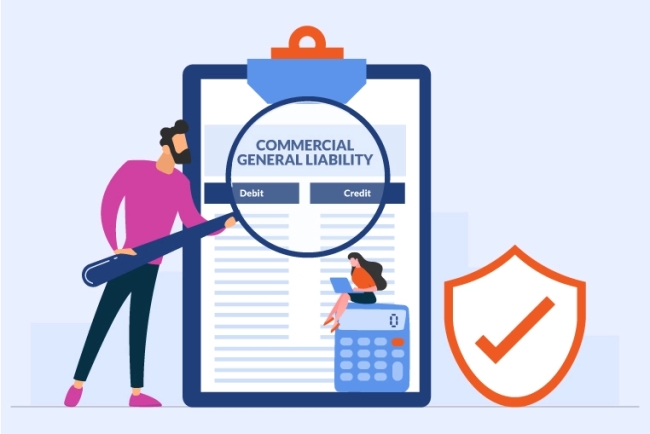When it comes to managing and preserving properties, especially in the real estate and property management industries, having comprehensive insurance coverage is essential. One of the key types of coverage to consider is property preservation insurance. This insurance is crucial for protecting your assets against various risks, including damage and liability. In this article, we'll delve into what property preservation insurance is, why it's important, and the specific requirements you need to meet to ensure you're adequately covered.
What is Property Preservation Insurance?
Property preservation insurance is a specialized type of insurance designed to cover properties that are either in transition or undergoing maintenance. This insurance is particularly relevant for real estate investors, property managers, and banks holding foreclosed properties. The primary goal of this coverage is to protect properties from risks that could lead to significant financial loss.
This type of insurance typically includes coverage for:
- Property Damage: Protection against damage caused by various perils such as fire, vandalism, and severe weather.
- Liability Coverage: Protection against legal claims arising from injuries or damages that occur on the property.
- Vacancy Coverage: Special provisions for properties that are unoccupied for extended periods, which can be a significant risk factor.
Why is Property Preservation Insurance Important?
Property preservation insurance is crucial for several reasons:
-
Mitigates Financial Risk: Without proper insurance, property owners and managers may face substantial out-of-pocket expenses due to unexpected damage or legal claims. This coverage helps mitigate those financial risks.
-
Compliance with Regulations: In many cases, having adequate insurance is a regulatory requirement for property managers and investors. Ensuring compliance can prevent legal issues and potential fines.
-
Protects Investment: Properties, especially valuable ones, represent a significant financial investment. Insurance helps safeguard these assets from various risks, preserving their value.
-
Peace of Mind: Knowing that your property is covered against potential risks provides peace of mind and allows you to focus on other aspects of property management and investment.
Understanding Property Preservation Insurance Requirements
To ensure that you're fully covered, it's essential to understand the specific requirements and considerations involved in property preservation insurance. Here are some key points to consider:
Property Type and Use
Different types of properties may have different insurance needs. For example, a single-family rental property may require different coverage than a multi-unit apartment building or a commercial property. Additionally, the use of the property (residential, commercial, or industrial) can affect the insurance requirements.
Requirement: Ensure that your insurance policy is tailored to the specific type of property you own or manage, considering its use and occupancy status.
Coverage Limits
Coverage limits refer to the maximum amount your insurance will pay out in the event of a claim. It's crucial to choose coverage limits that adequately reflect the value of your property and the potential risks involved.
Requirement: Assess the value of your property and its contents to determine appropriate coverage limits. Consider consulting with an insurance professional to ensure that your limits are sufficient.
Vacancy Provisions
Properties that are vacant or under renovation may face increased risks, such as vandalism or unnoticed damage. Many standard property insurance policies have exclusions or limitations for vacant properties.
Requirement: Look for insurance policies that offer specific provisions for vacant or under-renovation properties to ensure comprehensive coverage during these periods.
Liability Coverage
Liability coverage protects you against claims arising from injuries or damages occurring on your property. This is particularly important if your property is accessible to the public or if you have tenants.
Requirement: Ensure that your policy includes sufficient liability coverage to protect against potential legal claims. This may include coverage for bodily injury, property damage, and legal defense costs.
Compliance with Local Regulations
Different regions may have specific insurance requirements for property owners and managers. It's essential to be aware of and comply with these local regulations to avoid legal issues.
Requirement: Research the insurance requirements in your area and ensure that your policy meets all local regulatory standards.
Additional Coverage Options
In addition to standard coverage, you may want to consider additional options based on your specific needs. This could include coverage for natural disasters, equipment breakdowns, or loss of rental income.
Requirement: Evaluate your property's unique risks and consider additional coverage options that may be beneficial.
How to Choose the Right Property Preservation Insurance
Choosing the right property preservation insurance involves several steps:
-
Assess Your Needs: Evaluate the specific risks associated with your property and its use. Consider factors such as location, property type, and occupancy status.
-
Shop Around: Compare insurance policies from different providers to find the one that offers the best coverage for your needs. Look for policies that are tailored to property preservation.
-
Consult with Experts: Consider working with an insurance broker or advisor who specializes in property insurance. They can help you navigate the complexities of coverage options and find the best policy for your situation.
-
Review Your Policy Regularly: As your property and its circumstances change, review your insurance policy to ensure it remains adequate. Make adjustments as needed to maintain comprehensive coverage.
Common Misconceptions About Property Preservation Insurance
Several misconceptions can lead to misunderstandings about property preservation insurance:
-
"Standard Homeowners Insurance Covers Everything": While homeowners insurance provides some coverage, it may not include the specific protections needed for vacant or transitioning properties.
-
"Property Preservation Insurance is Only for Foreclosures": This type of insurance is beneficial for various property management scenarios, not just foreclosures.
-
"All Insurance Policies are the Same": Policies can vary significantly in terms of coverage, limits, and exclusions. It's important to carefully review and compare options.
Property preservation insurance is a vital component of managing and safeguarding your property investments. By understanding the requirements and ensuring that you have adequate coverage, you can protect your assets from various risks and mitigate potential financial losses. Whether you are a real estate investor, property manager, or bank holding foreclosed properties, having the right insurance coverage is crucial for maintaining the value and integrity of your properties.
Ensure that you assess your specific needs, comply with local regulations, and consult with insurance professionals to secure the best possible coverage for your property preservation needs. With the right insurance in place, you can have peace of mind knowing that your properties are well-protected against potential risks.




















